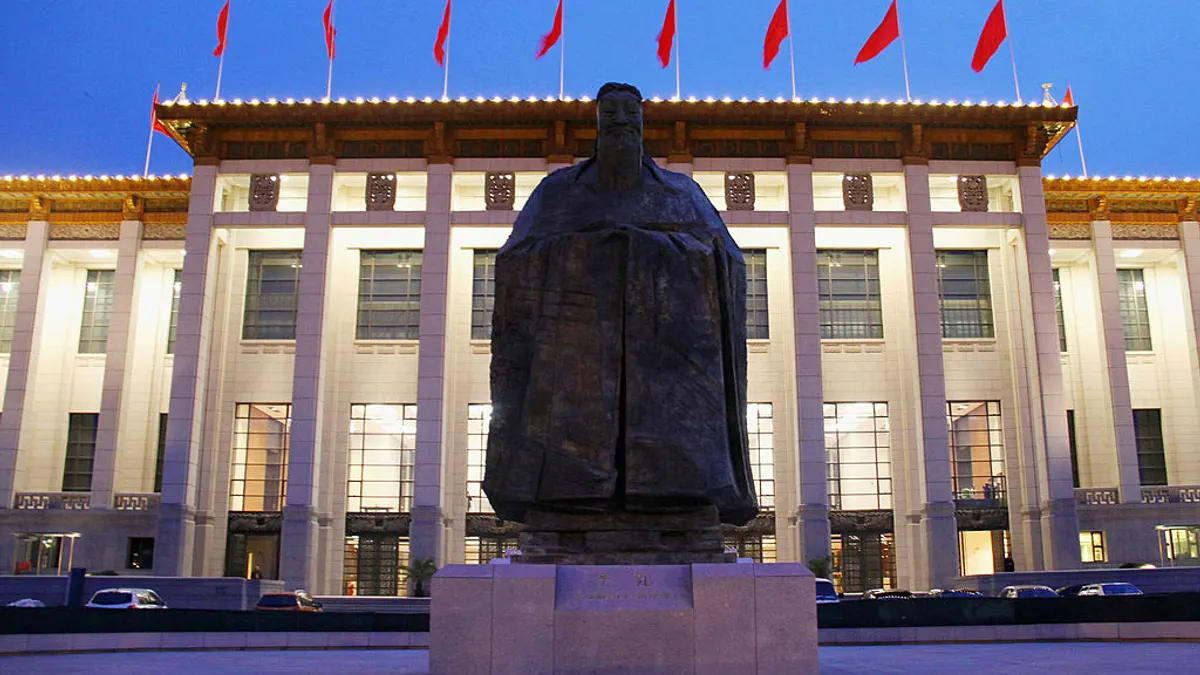The Holding Foreign Companies Accountable Act, signed into law in December 2020, mandated Chinese-based companies and auditors comply with the audit inspection process consistent with Sarbanes-Oxley.
Subsequently, in November 2021, the U.S. Securities Exchange Commission (SEC) approved rules proposed by the Public Company Accounting Oversight Board (PCAOB) that could prohibit 270 China-related companies from trading in the U.S. in the next three years.
Drew Bernstein
“Whether in California, the Cayman Islands or China, all companies that seek to raise money in the deep and liquid U.S. capital markets should play by America’s rules,” SEC Chair Gary Gensler wrote last year in The Wall Street Journal.
The PCAOB inspects auditors based in 53 foreign jurisdictions. Mainland China and Hong Kong are the only places beyond its reach. According to the PCAOB, oversight through inspections is restricted for 191 China-based companies with a combined market cap of $1.9 trillion.
Regulators may or may not ban the trading of these stocks. In the meantime, after a robust 2021 with 50 IPOs from China raising $15.4 billion on U.S. markets, only a handful of operating companies from China have gone public since July 2021. In addition, dozens of prospective IPOs have withdrawn their registration statements.
Several prominent Chinese technology companies like Alibaba and JD.com have established secondary listings in Hong Kong, and some institutional investors have begun to convert their U.S. holdings into HK shares. But retail investors could end up as collateral damage in a wholesale delisting, particularly if companies are taken private at disadvantageous terms.
Ideally, there will be a resolution that preserves the value of investor holdings while permitting U.S. regulators to inspect Chinese audits. On the surface, prospects for a compromise appear to be dim. But all may not be lost.
Changes Afoot
The PCAOB named four new board members, including a new chair, Erica Williams, last November. The leadership change may allow regulators to make a fresh attempt at negotiations.
For its part, China announced new regulations that may bring greater clarity to the murky legal status of Chinese companies that go public overseas.
Beijing delivered a shock to international investors in July 2021 when it banned the apps of Chinese ride-hailing giant Didi Chuxing. It also launched a series of investigations into how the company secures the millions of consumer data points it has amassed. That happened just days after the company completed its $4.4 billion IPO on the New York Stock Exchange. In December, Didi announced it would begin delisting from the NYSE and prepare to list in Hong Kong.
By creating a process to define companies holding national security-sensitive data, Beijing's review procedures could remove the concern of exposing such information to U.S. regulators.
In the future, any Chinese company that maintains data on one million users or more must obtain the permission of the Cyberspace Administration of China before listing overseas. The draft regulations take an expansive view of data that could be relevant to national security, including data related to telecommunications, finance, energy, and critical technologies.
By creating a process to define companies holding national security-sensitive data, the review procedures could remove the concern of exposing such information to U.S. regulators through audit inspections.
Equally important, China is demanding companies seek approval for the legal structure known as a variable interest entity (VIE) before listing overseas or selling additional shares. Western law firms devised the VIE to allow overseas investors to participate in the growth of sectors prohibited to foreign investment.
While used by many internet giants, the VIE has always had an ambiguous status; it is not clear if U.S. investors could ever enforce legal claims to the profits of Chinese operating entities. A stamp of approval by China’s securities regulator would bolster the legitimacy of the VIE vehicle while providing the Chinese government with additional control over which companies can list overseas.
Space for a Deal?
Paradoxically, China's recent crackdown on overseas listings might create the space for it and the U.S. to focus on their coincident interests.
If China can implement a relatively transparent approval process, that might help quell market jitters by clearly establishing which companies and structures have been cleared for ownership by overseas investors.
Meanwhile, the SEC has published a “Sample Letter” covering the kinds of risk disclosures it expects from issuers operating in China. While IPO prospectuses of Chinese issuers will be festooned with red flags, the clarity from the SEC will let deals move forward more predictably.
It is unlikely China will ever agree to provide U.S. regulators with unfettered access to the underlying audit data for state-owned enterprises or mega-unicorns.
The paradigm shift, though, creates an opportunity for China’s emerging growth companies (non-unicorns) and the hundreds of private "unicorn" companies seeking access to public listings. These highly valuable companies are attractive investments because they drive China’s domestic innovation.
Over the coming months, at least initially, issuers from China are likely to be smaller companies outside of restricted industries without sizable amounts of consumer data. They are likely to avoid using the VIE structure and be audited by smaller, U.S.-based firms already inspected by the PCAOB. That would allow them to avoid the prospect of forced delisting a few years down the road.
If the U.S. and China could demonstrate progress in resolving these critical but somewhat arcane audit issues, it would be a hopeful sign for finding common ground on a range of more prominent topics vital to our shared future.
Drew Bernstein is co-founder and co-chairman of MarcumBP, a public accounting firm that provides audit and advisory exclusively for Asian companies seeking U.S. listings.













